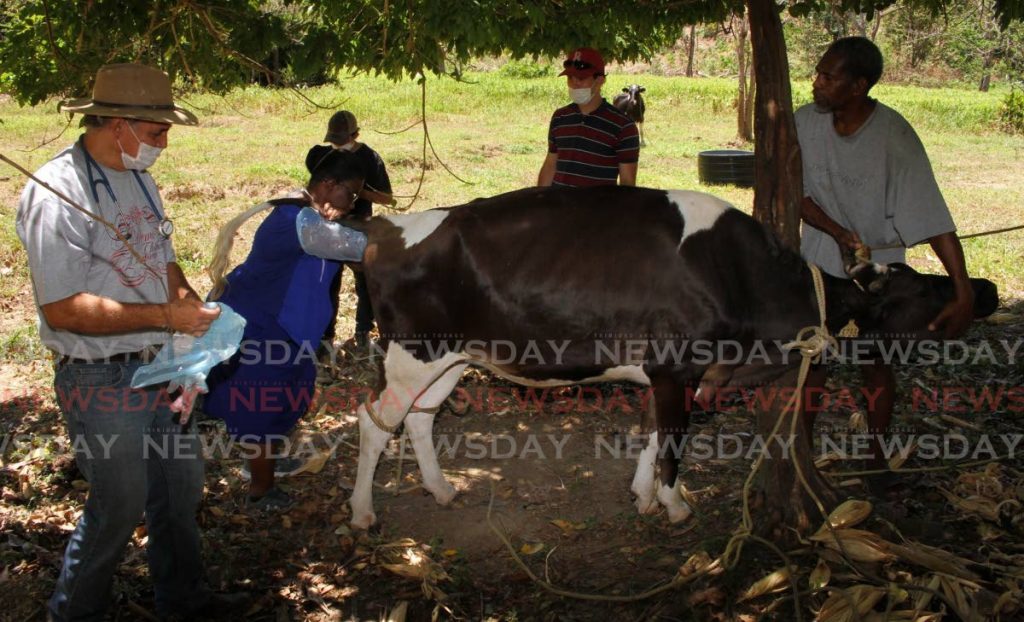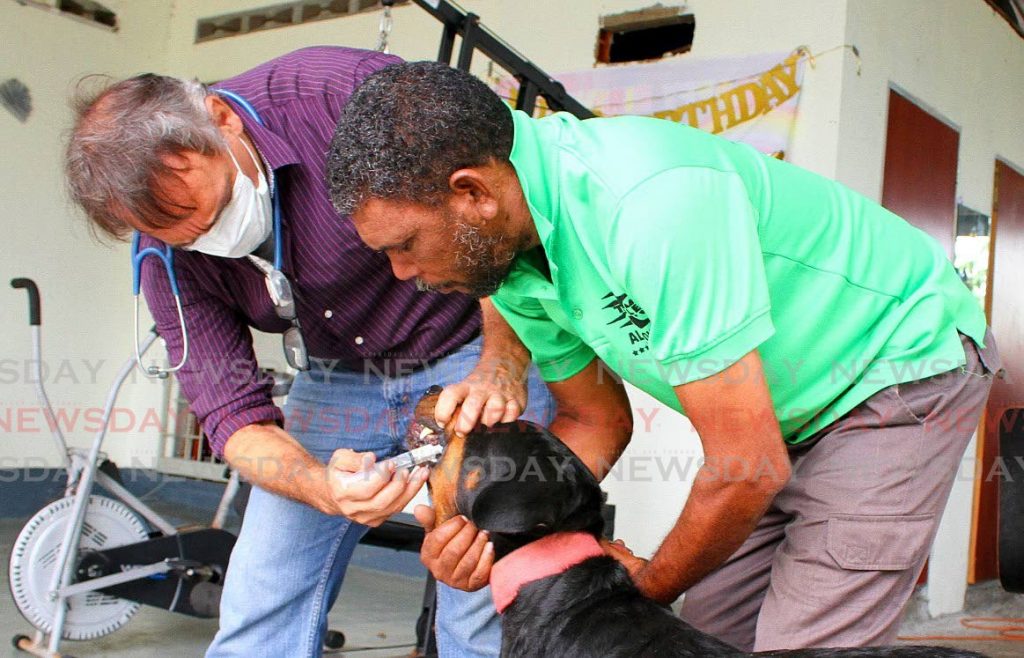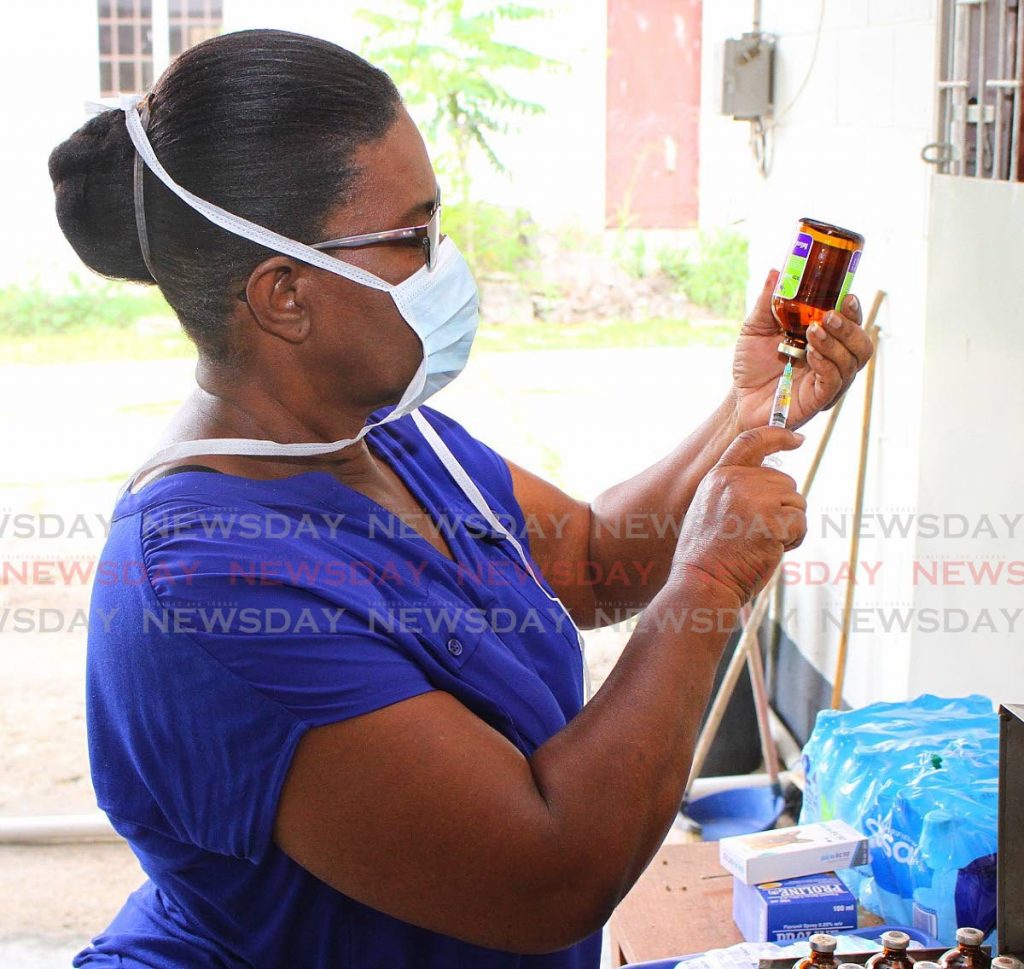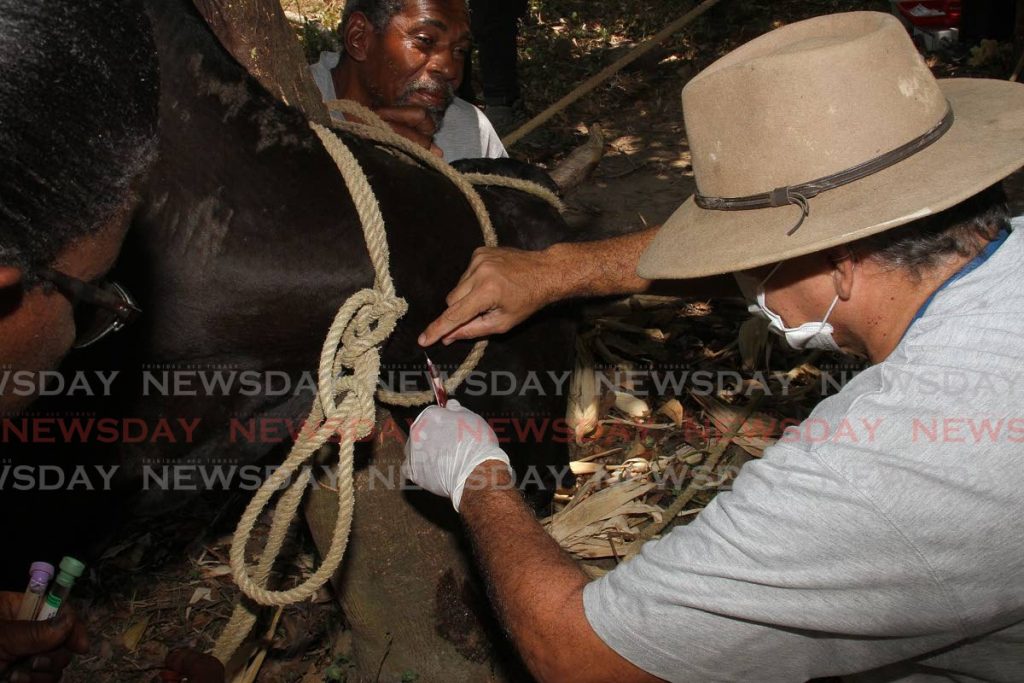TT should breed Girolando cattle

Venezuela and TT have joined forces, though probably not in the way you might be thinking.
Veterinarians Dr Francisco Cleves and Dr Lena Brereton have combined their years of experience with both large and small animals to create Sauca Livestock Services.
The former is from Venezuela and is an expert with large animals and now lives in Sangre Grande, where their office is also based. Aside from vet services, they also buy and sell animals, animal feed and other agricultural and veterinary products.
The two have built a partnership that offers a range of services to farmers, with a focus on technology. Speaking from his office, Cleves said, "We want to teach the people to produce."
Cleves proposes to breed Girolando cattle, a dairy breed created in Brazil by crossing Gyr cattle with Holstein cows. Gyr cattle, a
Bos indicus breed (cattle originating in India), are resistant to hot temperatures and tropical diseases, while the Holstein is a
Bos taurus (originating in Europe) breed. Holstein cows are the most popular breed among farmers and a well-respected breed globally, having previously held world records for producing the most milk per day.

Last August, however, a Brazilian Girolando cow called Marília produced 127.57 litres of milk in three milkings during the 34th Milk Sands Tournament to claim the title.
The cows produce 80 per cent of Brazil's milk, and Venezuela is following Brazil's lead. Cleves says Girolandos produce an average 50 litres of milk a day.
That’s more than seven times the amount produced by Sangre Grande cattle farmer Julian Reyes’ cows. They produce just seven litres. Reyes has been rearing cattle for 20 years.
Cleves commented, "That is the problem with many farmers, they tie the animal to a tree and the cow eats in a circle and all the grass.
"This is not good, as the cow should only be eating the top portion of the grass and moved to another area. Farmers don't like fencing in this country because it is expensive but it is best for them."

Cleves recommends a portable electric fence that will allow free-range grazing to increase milk production significantly.
Cattle farmers in TT also don’t provide their animals with sufficient water.
At least from Reyes’ perspective, part of that problem is an irregular water supply.
“I went out the road for water but there was none, so I have to wait until it comes," he said.
This lack of water is a serious problem for many cattle farmers. Cleves said, “Farmers want to give the cow water in the morning and evening, and this is not good.
"The two most important things for a cow to produce milk are water and grass. No water, no milk. A cow is supposed to drink approximately 80 litres of water per day.
"A farmer in Trinidad would give his cow 35 litres or less."

At Reyes' cattle farm, Cleves and Brereton gave some of the animals a rectal examination. One cow had a follicular cyst, which occurs when the follicle of the ovary doesn't rupture or release its egg. Instead, it grows until it becomes a cyst. The cow will be calling to mate, but won't get pregnant because of the cyst.
"The animals are not high quality and would have a lower quality if they breed." said Cleves.
The vets have also given farmers the option of having the animals artificially inseminated.
Reyes said,"Farmers need more of this (vet service). Sometimes you call the government agencies to come and they don't, or they take long. It should have more of this (quick responses)." Brereton added, "We also saw a need to provide insemination services to farmers. They want to have the animals inseminated, but they encounter all manner of problems. While we enjoy the demand for our services, it is a lot. Farmers lose a lot of cattle because of the limited access to timely vet services.
"
Reyes said from 2017 to 2018, he lost 17 of his 26 of his cattle, but did not elaborate on how they died. Now he has nine and he's eager to use Cleves and Brereton's help with inseminating his herd.
"I also have problems with bats biting the animal," he said. "I need medication for that. I use to get it at the ministry but I don't get it any more."
Brereton, who specialises in small animals, said she was privileged to have met Cleves, as he is skilled at what he does.
“I always wanted to master dealing with large animals, but the ability to restrain the animals was always a problem. Dr Cleves makes it look easy."
Cleves is hoping one day soon to meet with Agriculture Minister Clarence Rambharat.
"I want to meet with the government to lease lands in Chatham. This land is very good for cattle. I can set up the entire production there."

Comments
"TT should breed Girolando cattle"